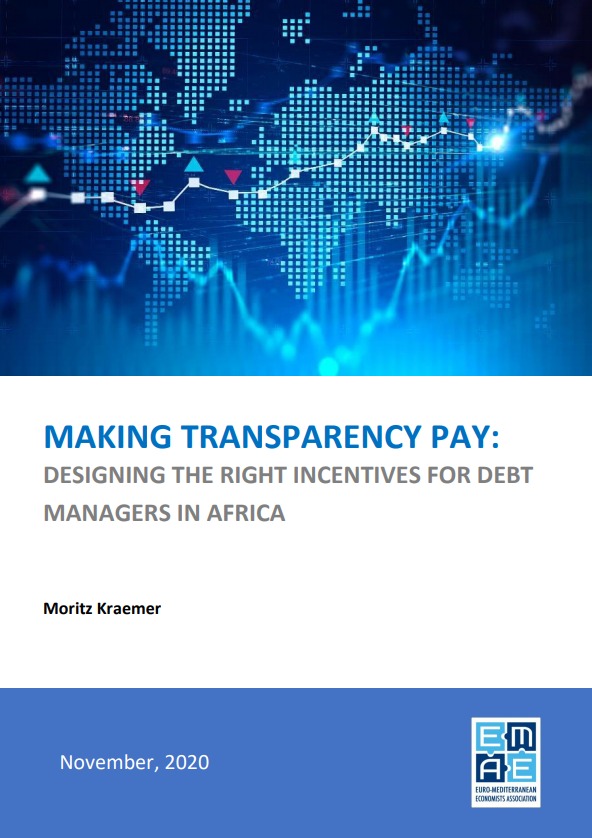The policy paper proposes the introduction of a variable remuneration component for debt managers in Sub-Saharan Africa and other less developed countries characterised by relatively underdeveloped institutional capacity and governance standards. The aim is to improve debt management outcomes and public debt transparency by aligning the interests of decision makers with those of the public. The structure of creditors of many African countries has become more complex and diversified. This renders transparency and credibility of a comprehensive inventory of all the financial liabilities of the sovereign an urgent objective. The COVID-19-induced deep recession across least-developed countries has intensified the risk of sovereign restructurings. A lack of full visibility of the nation’s debts can hold back a swift debt resolution. IN the absence of transparency different creditor groups will squabble with each other over fair burden sharing. This leads to delays, a deepening economic crisis for debtor countries and ultimately a more painful haircut for creditors.
Introducing a variable pay component for senior debt management officials can contribute to reducing the risks related to opaqueness of public debts. Debt managers’ pay should be partially linked to objective progress in debt transparency and better management performance overall. Like variable pay for corporate leaders of publicly traded companies (in the form of shares or options), inherent principal-agent-problems can be mitigated. While details may differ from country to country, performance-related variable pay for debt managers will self-enforce oversight and make strategic decisions more likely that will ultimately be welfare enhancing for debtor countries’ societies at large.- Home
- Team
- Research
-
-
Socio Economic Policy
Policy, Foresight and Institution TRIS Socio Economic Model Energy and Environment Territorial Resilience Research Initiative Health Policy and Economics Neuroscience Policy Research Covid-19 Policy Response Digitalisation and Artificial Intelligence Entrepreneurship & MSMEs Cultural Creative Industry Women Empowerment and Leadership
-
Money, Banking & Finance
-
Regional Integration & Partnerships
-
-
- Publications
-
-
Research
-
Communication
-
Latest Publication
Lead-Author/Editor: [lead_author]
Co-Authors/Contributors: Rym Ayadi
-
-
-
- Activities
- Events
- Latest
- Home
- Team
- Research
-
-
Socio Economic Policy
Policy, Foresight and Institution TRIS Socio Economic Model Energy and Environment Territorial Resilience Research Initiative Health Policy and Economics Neuroscience Policy Research Covid-19 Policy Response Digitalisation and Artificial Intelligence Entrepreneurship & MSMEs Cultural Creative Industry Women Empowerment and Leadership
-
Money, Banking & Finance
-
Regional Integration & Partnerships
-
-
- Publications
-
-
Research
-
Communication
-
Latest Publication
Lead-Author/Editor: [lead_author]
Co-Authors/Contributors: Rym Ayadi
-
-
-
- Activities
- Events
- Latest


